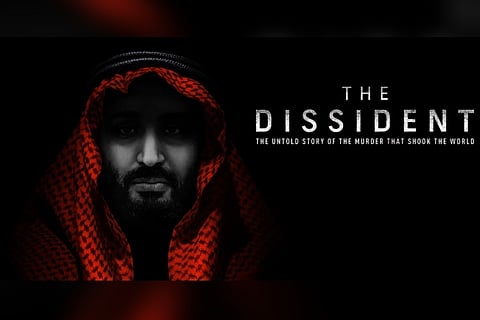

Chennai
For his second project, he chose another subject with global interest: the killing of Jamal Khashoggi, the Saudi Arabian dissident and Washington Post columnist, and the role that the Saudi crown prince, Mohammed bin Salman, played in it.
A film by an Oscar-winning filmmaker would normally garner plenty of attention from streaming services, which have used documentaries and niche movies to attract subscribers and earn awards. Instead, when Fogel’s film, The Dissident, was finally able to find a distributor after eight months, it was with an independent company that had no streaming platform and a much narrower reach. “These global media companies are no longer just thinking, ‘How is this going to play for U.S. audiences?’” Fogel said. “They are asking: ‘What if I put this film out in Egypt? What happens if I release it in China, Russia, Pakistan, India?’ All these factors are coming into play, and it’s getting in the way of stories like this.”
The Dissident opened in 150 to 200 theatres across the country on Christmas Day and then becomes available for purchase on premium video-on-demand channels on Jan. 8. (Original plans called for an 800-theater release in October, but those were scaled back because of the pandemic.) Internationally, the film will be released in Britain, Australia, Italy, Turkey and other European nations through a network of distributors.
It is a far cry from the potential audience it would have been able to reach through a service like Netflix or Amazon Prime Video, and Fogel said he believed it was also a sign of how these platforms — increasingly powerful in the world of documentary film — were in the business of expanding their subscriber bases, not necessarily turning a spotlight on the excesses of the powerful.
For his film, Fogel interviewed Khashoggi’s fiancée, Hatice Cengiz, who waited outside the Saudi Arabian Consulate in Istanbul in 2018 while the murder took place; The Washington Post’s publisher, Fred Ryan; and multiple members of the Turkish police force. He secured a 37-page transcript made from a recording of what happened in the room where Khashoggi was suffocated and dismembered. He also spent a significant amount of time with Omar Abdulaziz, a young dissident in exile in Montreal who had worked with Khashoggi to combat the way the Saudi Arabian government used Twitter to try to discredit opposing voices and criticism of the kingdom. The Dissident landed a coveted spot at the Sundance Film Festival in January. The Hollywood Reporter called it “vigorous, deep and comprehensive,” while Variety said it was “a documentary thriller of staggering relevance.” Hillary Clinton, who was at Sundance for a documentary about her, urged people to see the film, saying in an onstage interview that it does “a chillingly effective job of demonstrating the swarm that social media can be.” The only thing left was for Fogel to secure a sale to a prominent streaming platform, one that could amplify the film’s findings, as Netflix did with Icarus.
When Dissident finally found a distributor in September, it was the independent company Briarcliff Entertainment. Fogel said he had made Netflix aware of his film while it was in production and again months later when it was accepted into Sundance. “I expressed to them how excited I was for them to see it,” he said. “I heard nothing back.”
Sperling is a media and entertainment reporter with NYT©2020
The New York Times
Visit news.dtnext.in to explore our interactive epaper!
Download the DT Next app for more exciting features!
Click here for iOS
Click here for Android